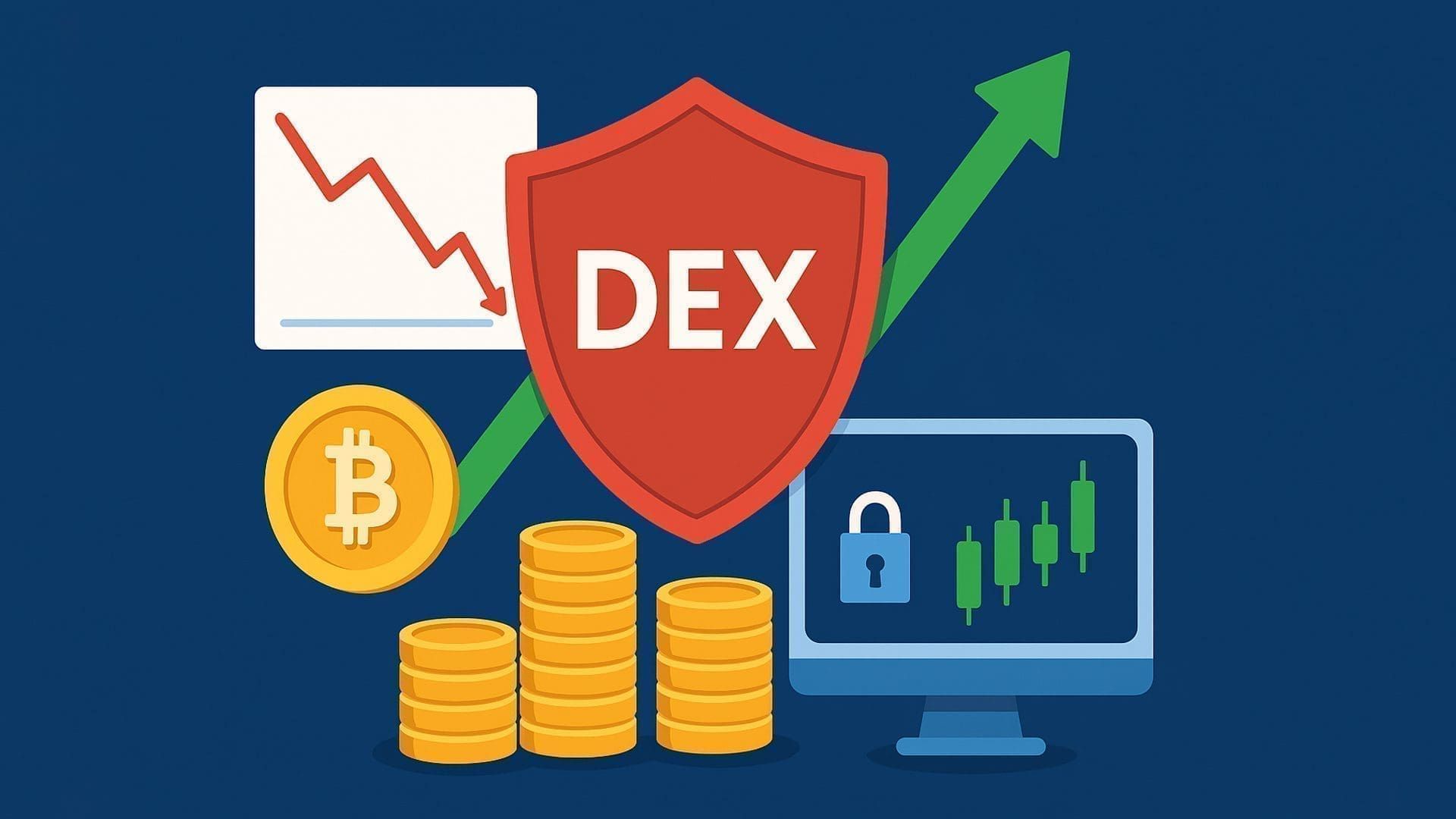🧠 What is a DEX?
-

A DEX (Decentralized Exchange) is a platform that lets users trade cryptocurrencies directly with one another — without the need for a central authority or custodian. Trades happen via smart contracts on blockchain networks like Ethereum, Solana, or BNB Chain.
 How is a DEX different from a CEX?
How is a DEX different from a CEX?
DEX CEX (Centralized Exchange)
No registration (wallet only) Requires account/KYC
You hold your own crypto Funds held by the platform
Powered by smart contracts Trades handled off-chain
Examples: Uniswap, PancakeSwap Examples: Binance, Coinbase
 Is trading on a DEX safe?
Is trading on a DEX safe?Yes — as long as you control your wallet and avoid scam tokens. There’s no central custodian to be hacked, but smart contract vulnerabilities and rug pulls can still happen. Always verify tokens and use trusted platforms.
🧪 What are AMMs?Most DEXs use AMMs (Automated Market Makers) instead of traditional order books. AMMs like Uniswap or Balancer rely on liquidity pools — users deposit crypto into pools, and smart contracts handle pricing based on supply and demand.
 How do liquidity providers (LPs) earn money?
How do liquidity providers (LPs) earn money?LPs earn trading fees (usually 0.3% per trade) from users who swap tokens in the pool. Some DEXs also offer yield farming rewards or tokens for providing liquidity.
 ️ What is impermanent loss?
️ What is impermanent loss?Impermanent loss happens when the price of tokens in your liquidity pool changes — potentially causing lower value than simply holding the tokens outside the pool. It's a risk LPs take in volatile markets.
🪙 Can I list my own token on a DEX?Yes! Most DEXs allow permissionless token listings. You just need to create a liquidity pair (like ETH/XYZ) and fund it. However, this also opens the door to scam tokens, so DYOR (do your own research) before trading anything new.
🧾 Do I need to pay fees?Yes — you pay network gas fees (like ETH or SOL) to execute transactions and a small trading fee to the DEX (usually split between LPs). On high-traffic chains like Ethereum, gas fees can be expensive, so many users trade on L2s or altchains.
 How do I find and use a DEX?
How do I find and use a DEX?Connect your wallet (e.g. MetaMask) Visit the DEX (e.g. Uniswap, PancakeSwap) Choose your tokens and trade Approve the transaction in your wallet Best-known DEXs by chain:
Best-known DEXs by chain:Ethereum: Uniswap, Sushiswap, Curve BNB Chain: PancakeSwap Arbitrum/Optimism: Uniswap, Camelot Solana: Jupiter, Raydium Polygon: QuickSwap -
Love seeing foundational content like this in the forum. Too many newcomers jump into DeFi without fully understanding what a DEX really is. At its core, a DEX (Decentralized Exchange) flips the script — no middlemen, no custodians, just pure peer-to-peer trading through smart contracts.It’s the backbone of true financial sovereignty. You control your keys, your funds, and your trades. But with that freedom comes responsibility too — like understanding slippage, gas fees, and wallet security. Posts like this help people move from hype to actual understanding. 🧠


-
A DEX isn’t just a type of exchange — it represents the core values of crypto: decentralization, transparency, and trustless systems. Unlike centralized exchanges where you're basically renting access to your own funds, a DEX lets you stay in full control.What’s awesome is that even though the UX is improving, there’s still a learning curve — and this kind of post helps bridge that gap. Big props for breaking it down in simple terms. Hope more people take the time to actually understand the tools they’re using.



















